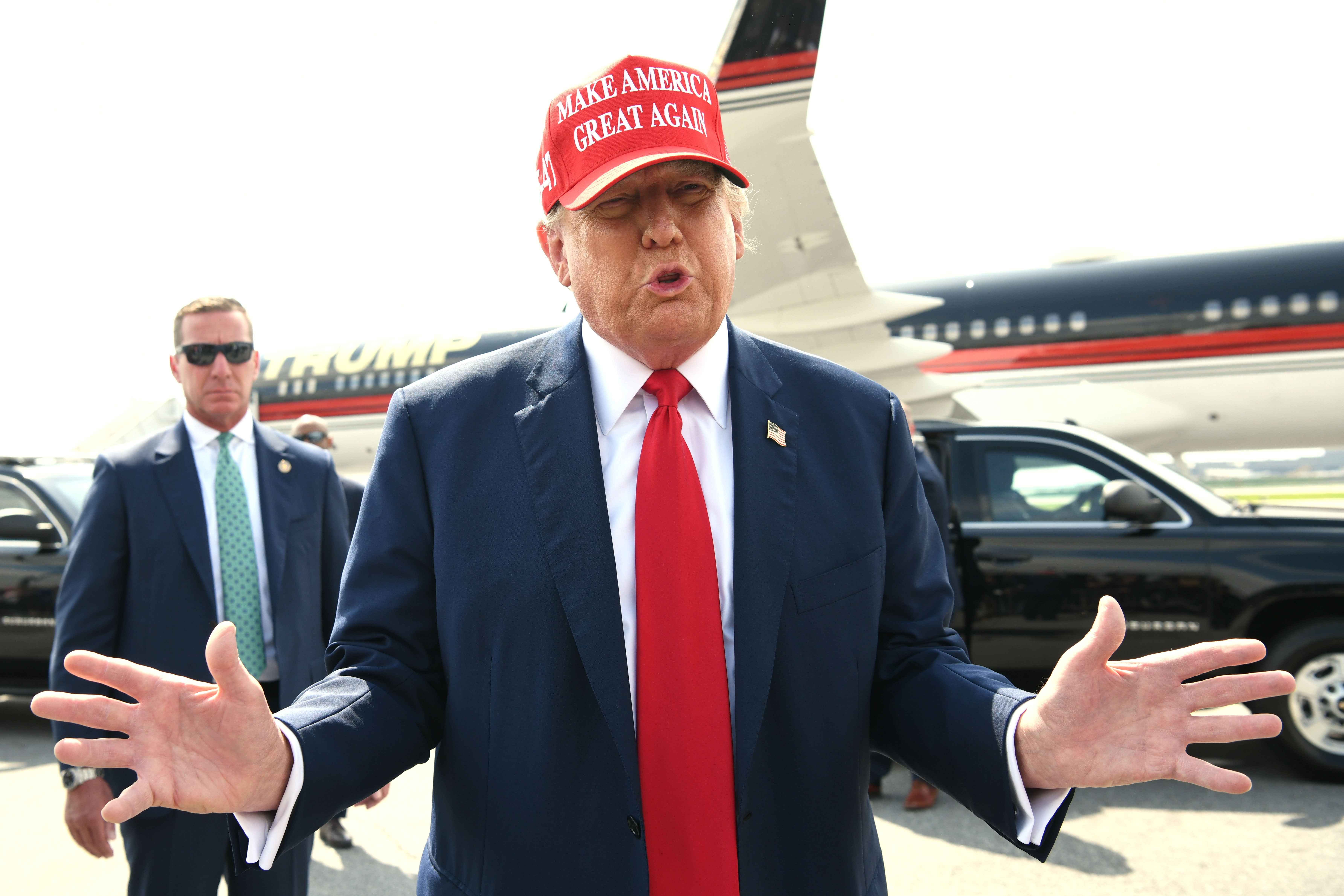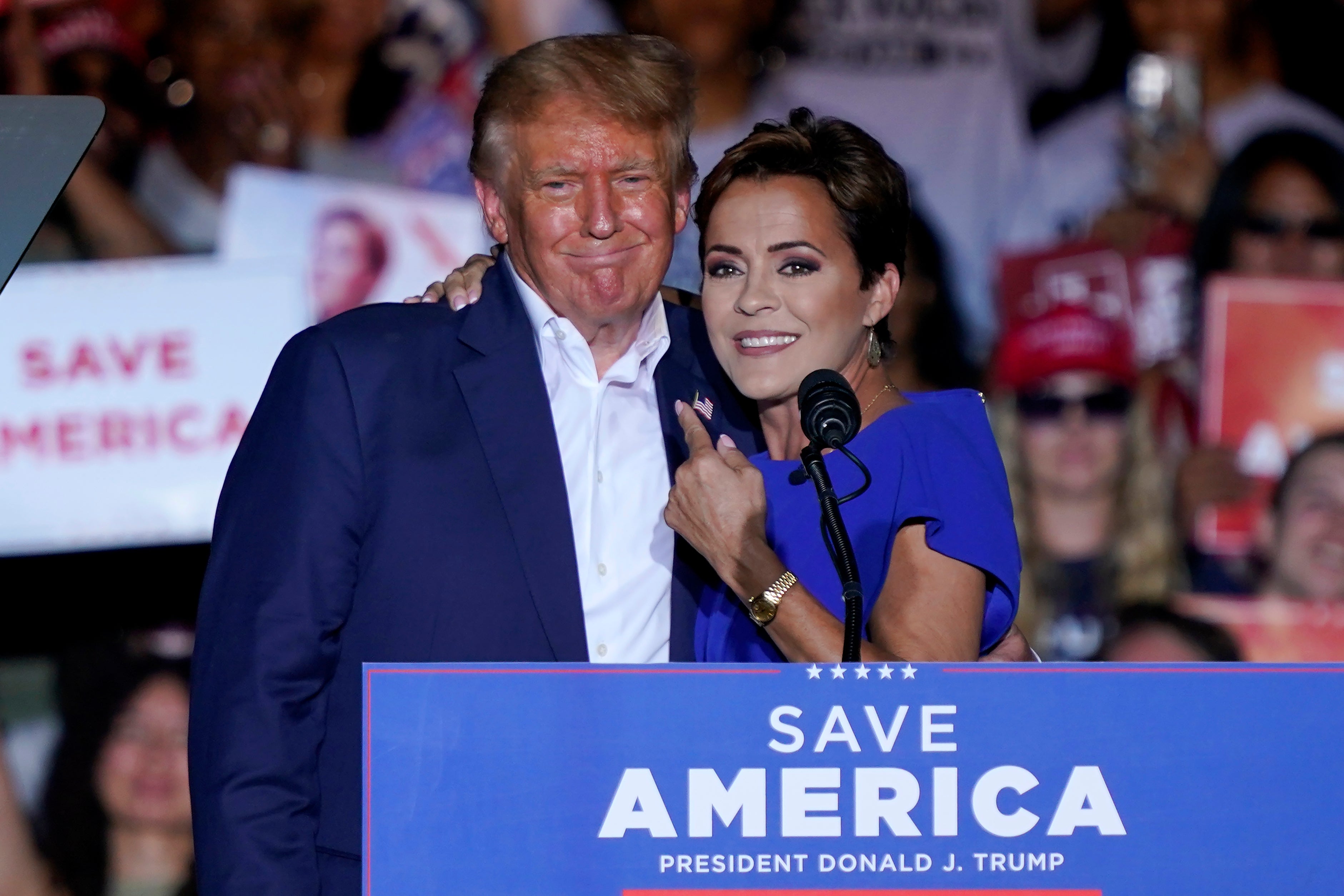How Trump’s ‘woman problem’ has become an election nightmare for the Republicans
The former president – and his appointments to the Supreme Court – ended American women’s constitutional right to have an abortion. Trump used to crow about it, but he now knows it could cost his party dear at the election, writes Jon Sopel


When Donald Trump speaks, the Republican world listens. Well, it listens until the point where what the former president is saying becomes a heavily tossed word salad, leaving a bewildered autocue operator fumbling about trying to decide where to place the cursor.
But this week Trump did speak, and, because of the importance of the subject and the controversy around it, he stuck rigidly to the lines that had been written.
The subject was abortion, and what should be the way forward nearly two years on from the overturning of Roe v Wade. This huuuuge victory (that is the Trump spelling of the word huge), ending the 50-year-old constitutional right of American women to get an abortion, was down to Trump and the three people he was able to appoint to the Supreme Court.
He crows about it. But since then, his victory lap has begun to resemble a long walk of shame. His problem is that, wherever the right to an abortion has been put on a state ballot, the electorate has said it wants women to be able to retain control over their reproductive rights. And such votes have taken place in states that are all shades of Republican red – from thin pinot noir Ohio to deeply malbec Kansas.
There have been other races in which candidates have sought to weaponise the abortion issue, and – again – it has cost Republicans dear. So, Trump has a problem. And this week he tried to give an answer.
“My view is now that we have abortion [law] where everyone wanted it from a legal standpoint, the states will determine by vote or legislation, or perhaps both. And whatever they decide must be the law of the land. In this case, the law of the state,” Trump said in a video posted to his Truth Social platform. Like Ronald Reagan, he is in favour of women having the right to abortion in cases that involve rape, incest, or a risk to the mother.
“Many states will be different,” Trump continued. “Many will have a different number of weeks, or some will have more conservative [rules] than others, and that’s what they will be. At the end of the day, this is all about the will of the people.”

It was Trump coming out firmly against the nationwide ban on abortion sought by anti-abortion, conservative evangelicals and Catholic lobby groups. In their eyes, the job is half-done; now is the time to complete the work. But Trump sees nothing but electoral peril on that route. Keep it sensible; leave it up to individual states.
And within 24 hours, one of the states made a decision. Indeed, not just any state, but Arizona, which is likely to be one of the half-dozen that will decide the next presidential election. It could also be the state that will decide which party controls the House of Representatives, and which the Senate. It is a classic “purple state” – a blend of blue Democrats and red Republicans.
What Arizona’s supreme court ruled on Tuesday was, in effect, a total ban on abortion; it readopted the law from 1864 (yes, that is an 8 and not a 9) – before Arizona was even a state, before the American civil war had ended, and before women had the right to vote. A time when an abortion provider could look forward to up to five years in prison. It is as draconian a measure as has been taken anywhere since the overturning of Roe v Wade.
What makes this so radioactive for the Republican Party is that abortion will almost certainly be on the ballot in November. In US elections, you can get some of the longest ballot papers in the world, as you are asked to choose your preferred presidential candidate, your senator, your House representative, right down to who should be the town dog-catcher.
Now, voters are likely to have a proposition on abortion. And as has been seen in Ohio, Kansas, Kentucky – as well as in House races, such as New York – there are two effects: one, there is a higher turnout; two, it is manna for Democrats, who’ve made supporting a woman’s right to choose a cornerstone of their campaigning.
If you want evidence of the panic this has caused in Republican circles, I present to you exhibit No 1: Ms Kari Lake. She is an uber-Maga Trump supporter, and is Arizona’s Republican candidate for the US Senate in November. I met her last June in Miami, when she had come all the way to the courthouse where Trump was being charged with illegally keeping classified documents. She was offering herself to the US networks to say what an honest, upstanding guy he was.

On the reproductive rights issue, she has been crystal clear: two years ago she told an interviewer that abortion should be banned, that life begins at conception, that abortion pills should be made illegal, and that the law should go back to where it was in 1864.
So, was the former TV presenter dancing for joy when that was exactly what the Arizona Supreme Court decided? Er, no. Not even close. She issued a statement condemning the court decision, and urging the Democratic governor (oh the sweet irony) to find an “immediate common-sense solution that Arizonans can support”. In other words: please save my political skin by doing something – anything – to stop this from aborting my bid for office.
For 50 years, conservative and Republican groups have dreamed of getting rid of federal abortion laws. Now they’ve got it, they don’t know what to do with it, like the dog that catches the car. Be careful what you wish for.
Jon Sopel is the former BBC North America editor and now presents Global’s ‘The News Agents’ podcast






Join our commenting forum
Join thought-provoking conversations, follow other Independent readers and see their replies
Comments